
Mayonnaise isn't as dangerous as you might think, but you shouldn't eat a sandwich that's been sitting around because of the risk of food-borne illness from other ingredients in the sandwich. Every year, 3,000 people in the U.S. become ill with food poisoning, which can cause serious illness, ranging from fever, diarrhea and vomiting to kidney failure and death. No matter how appetizing that sandwich looks, it's not worth the risk.
Mayo Myths
For years, mayonnaise has gotten a bad rap as a food poisoning culprit. This reputation may stem from the days when people regularly made mayonnaise at home. Homemade mayonnaise usually contains raw eggs, which can harbor salmonella bacteria, a potential source of serious food poisoning. Commercial mayonnaise contains pasteurized eggs, as well as vinegar and salt or lemon juice. These ingredients acidify and preserve mayonnaise, so it's actually a very safe product. Of all the ingredients in your sandwich, mayonnaise is probably the least problematic one, unless you're using homemade mayo made with raw eggs.
It's in the Fixings
Mayonnaise probably won't cause food poisoning, but the fillings that usually go with it can. Dairy and meat products, including sliced cheese, eggs, tuna fish and cured deli meats, all harbor bacteria which can cause food-borne illness. Bacteria quickly multiplies when food is left in the "danger zone" -- which includes temperatures between 40 and 140 degrees Fahrenheit, according to the USDA. Any prepared food should be tossed if it's been left out for several hours. Always keep hot foods hot and cold foods cold.
Timing Is Everything
Indoors, you can safely leave a sandwich out for up to two hours after making it, according to the USDA. After that, bacteria starts to multiply rapidly. In hot weather the margin of safety is cut to one hour. Don't take chances. Refrigerate sandwiches or pack your lunch box with an ice pack. If a sandwich feels warm to the touch, don't eat it. These guidelines go for all prepared lunch foods, including potato salad, yogurt, baked beans and even green salad. Shelf-stable foods, such as potato chips and cookies, can be stored at room temperature.
The Good Stuff
Don't be scared off from making your own mayonnaise because of the fear of food poisoning. Homemade mayonnaise is simple to make, and you can whip up gourmet versions by adding dill, chipotle chili powder or grainy mustard. Just be sure to use a pasteurized egg product rather than fresh eggs in the mayonnaise. Raw eggs must be heated to 160 degrees F. to destroy bacteria, which would ruin the mayonnaise. Pasteurized egg products have been heated commercially to destroy bacteria without cooking the egg.
Related Articles

Do You Have to Refrigerate Mayonnaise ...

Does Tiramisu Have to Stay Refrigerated?

Can You Eat Expired Mayonnaise?
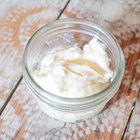
How to Make a Mayonnaise Facial Mask

Can You Eat Sour Cream If It's Been ...

How Long Can a Bagel With Cream Cheese ...

How Long Does Whipping Cream Stay Fresh ...

Do Boston Cream Pie Cupcakes Need ...
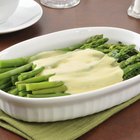
How to Heat Mayonnaise
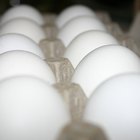
How to Store Cracked Eggs in ...
Is Mayonnaise That Has Been Frozen Safe ...

How Early Can You Make a Wedding Cake?

How Long Can Tuna Stay Fresh?
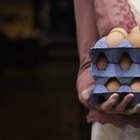
Can You Eat an Egg That's Been Frozen?

Does Cream Cheese Filling Have to Stay ...
How Long Can Leftovers Be Refrigerated?
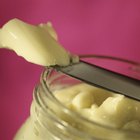
How to Fix Mayo With Broken Emulsion

Can You Marinate Tuna Tartare Overnight?

Calories in Subway Seafood Salad
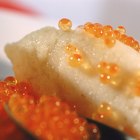
How to Cook Catfish Eggs
References
Writer Bio
Julie Christensen is a food writer, caterer, and mom-chef. She's the creator of MarmaladeMom.org, dedicated to family fun and delicious food, and released a book titled "More Than Pot Roast: Fast, Fresh Slow Cooker Recipes."
Photo Credits
ITStock Free/Polka Dot/Getty Images